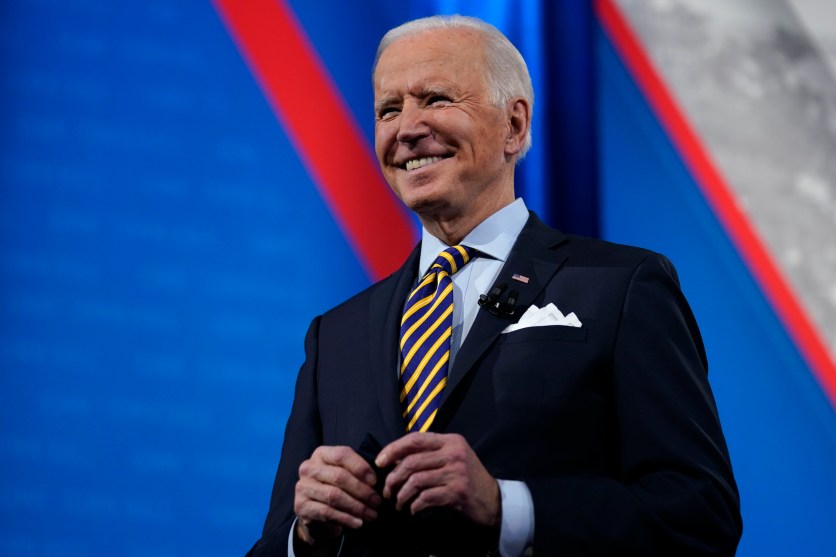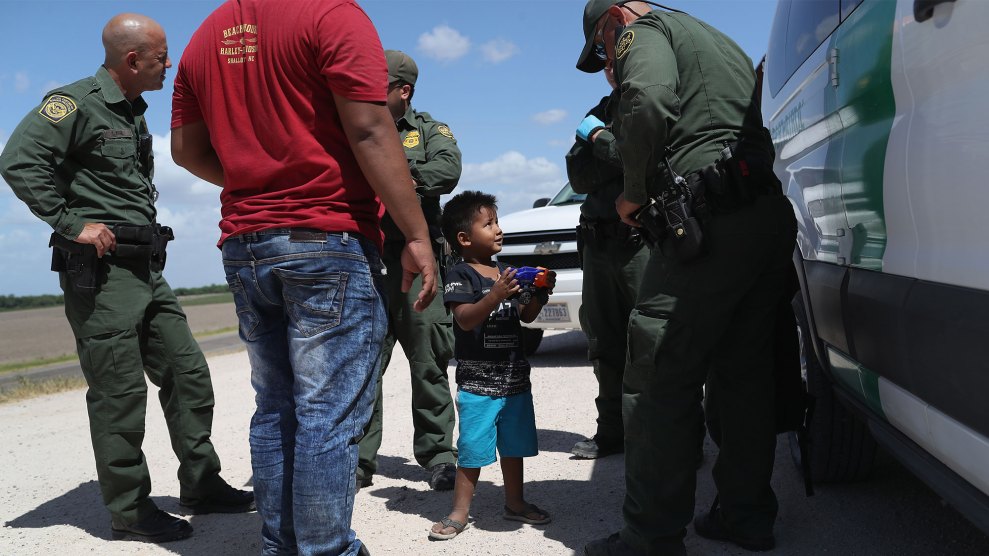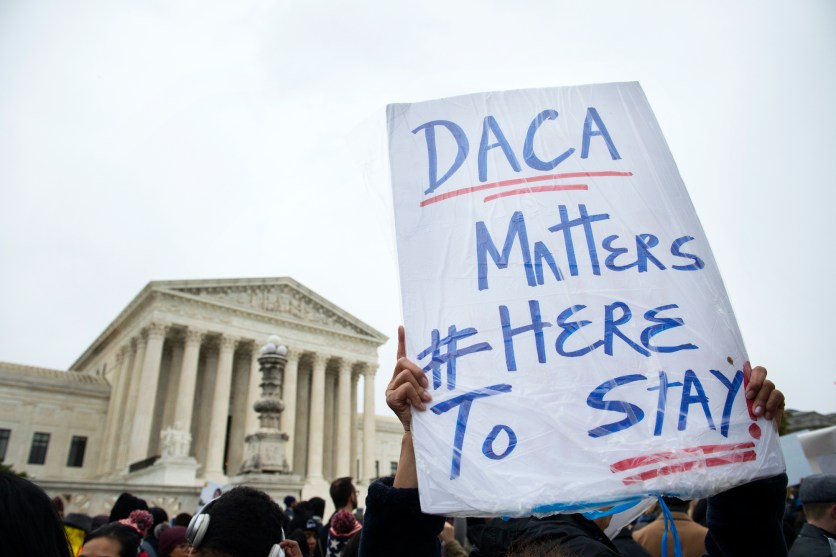
President Joe Biden at a town hall event in Milwaukee. Evan Vucci/AP
On Thursday, Democrats formally introduced the US Citizenship Act of 2021, a comprehensive immigration reform bill that reflects a number of priorities President Joe Biden announced on his first day in office. Sen. Bob Menendez of New Jersey and Rep. Linda Sánchez of California unveiled the legislation, which would provide an eight-year pathway to citizenship for 11 million undocumented immigrants while also deploying more technology for border security.
“We have an economic and moral imperative to pass big, bold, and inclusive immigration reform that leaves no one behind,” Sen. Menendez said during a virtual press conference to unveil the immigration bill. “We will never win an argument we don’t have the courage to make.” The senator added that Democrats have failed to pass immigration reform time and time again because “we have compromised too much and capitulated too quickly to fringe voices who have refused to accept the humanity and contributions of immigrants to our country and dismiss everything, no matter how significant it is in terms of the national security, as amnesty.”
Democratic lawmakers and the Biden administration face an uphill battle for bipartisan support for the act in a razor-thin majority Congress. “I am under no illusions. I know from my time in the Gang of Eight that passing immigration reform through the Senate is a Herculean task,” Sen. Menendez said in a recent statement to the American Business Immigration Coalition (ABIC), referencing his experience as a member of the bipartisan group of senators who pushed for immigration reform in 2013. To get around a Senate filibuster, Democrats would need at least 10 Republican votes.
During a CNN town hall on Tuesday, Biden indicated he might consider tackling immigration overhaul piecemeal. “There’s things that I would deal by itself, but not at the expense of saying, ‘I’m never going to do the other.’ There is a reasonable path to citizenship,” he said. In a call with reporters on Wednesday, a senior White House official said, “It was too early to think about legislative alternatives.”
Here are some of the main provisions in the legislation (for the full text, here’s the House version, and here’s the Senate version):
- The US Citizenship Act of 2021 creates an eight-year path to citizenship for people living in the United States without legal status on or before January 1 of this year. It allows undocumented immigrants to apply for temporary status and be eligible for green cards in five years provided that they meet certain requirements, such as passing criminal and national security background checks and paying taxes. After three years as green-card holders, they would be allowed to apply for citizenship.
- As part of an expedited pathway to citizenship, the bill would also immediately make permanent resident status available to DACA and TPS recipients, as well as farmworkers.
- It includes the so-called NO BAN Act to prevent future administrations from issuing bans that discriminate based on religion. In January, Biden signed an executive order to end the Trump-era travel ban that targeted predominantly Muslim countries.
- The legislation proposes a $4 billion plan over four years to address the root causes of migration in Central America by increasing assistance to Honduras, Guatemala, and El Salvador. It also expands refugee resettlement in the Western Hemisphere and revives an Obama-era program that granted temporary status to Central American minors.
- Replaces the word “alien” in immigration law with “noncitizen.”
- Eliminates so-called “3- and 10-year bars” that prevent immigrants from returning to the United States after being unlawfully present in the country.
- Increases funding to deploy technology and expand infrastructure at the borders to improve ability to identify and prosecute individuals involved in smuggling, narcotics, and trafficking networks, as well as to screen asylum seekers.
- Raises per-country caps for employment-based visas and exempts spouses and minor children of lawful permanent residents from the cap. it also increases from 55,000 to 80,000 the number of diversity visas for immigrants from countries with historically low rates of immigration.










